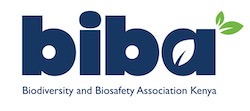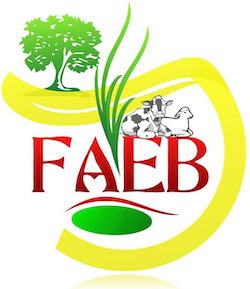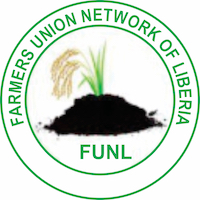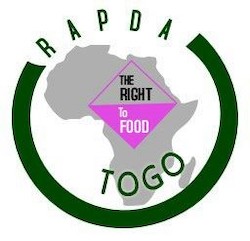
Meet our Associate members

The Biodiversity and Biosafety Association of Kenya (BIBA Kenya) is a network of 57 farmer organizations, animal welfare organizations, consumer networks, faith-based organizations and community-based groups working in the areas of environment, agriculture, food safety, health and biodiversity.
BIBA Kenya works with small-scale farmers through its members in the promotion of seed and food sovereignty, adoption of agroecological farming practices, preservation and conservation of biodiversity through capacity building training, community seed and food fairs, information sharing and documentation. The network remains a key voice in raising key concerns on the environmental, socio-economic impacts and health and safety uncertainties that the consumers may face with the introduction of Genetically Modified Organisms (GMOs).
BIBA Kenya contributes to influencing policies geared towards sustainable safe food production and promotion of farmers and consumer rights. In collaboration with the other national, regional and global organizations BIBA Kenya will undertake joint campaigns, advocacy and lobbying.

Fédération Agroécologique du Bénin (FAEB) groups together organizations and individuals who either practice agroecology on their farms or support those who practice it. FAEB now has eight organizations that practice agroecology or are in the process of conversion, and some 20 individuals, the majority of which support agroecological producers. To be a member of FAEB, one must adhere to its charter which not only defines agroecology but sets the principles, values, philosophy and ethics that form the basis of agroecological practices and behaviors. FAEB is national in scope.
FAEB works to promote agroecology by supporting its members through information and training, but also through actions of political influence so that agroecology gains the place it deserves in national agricultural policies. In this sense, FAEB organizes public lectures, radio and television shows, fairs and lobbying activities with the authorities concerned with agricultural problems. To ensure succession, FAEB intervenes in education, primary schools, colleges and universities, to inform, educate and train youth in agroecology.

The National Alliance for Agroecology Gambia (NAAG) emerged in response to increasing concerns about food insecurity, environmental degradation due to chemical fertilizers, and the need for a sustainable farming approach. Recognizing the harms of non-inclusive transnational cooperations, NAAG champions agroecology and organic farming as solutions for a sustainable and localized food system. NAAG stands firm in promoting food sovereignty, emphasizing control over land, seeds and water, and rejecting the capture of natural resources. This alliance amalgamates various associations – from farmers to food processors – each having a national character and working towards the mutual goal of sustainable food systems. NAAG bridges local and global platforms, ensuring farmers’ voices are heard and their rights are respected. The alliance is dedicated to solidarity and cohesiveness among members and fosters knowledge exchanges across borders. Registered as a non-profit, farmer-based organization, NAAG prioritizes inclusivity, especially for women, youth, and persons with disabilities.
NAAG aims to empower farmers in agroecology and organic agriculture. This empowerment is achieved through capacity-building, sharing knowledge, and exchanging best practices among family farmers. NAAG not only seeks to improve the socio-economic aspects of its members but also champions environmental protection. Concurrently, the alliance ardently supports grassroots efforts advocating for food justice and sovereignty.

The Zambia Alliance for Agroecology and Biodiversity (ZAAB) is a Zambian registered member organisation, with a country-wide network supported by a secretariat office based in Lusaka. ZAAB members include Zambian civil society, faith and research organisations, farmer and consumer associations, and associate individual champions and regional partners.
The mission of the Zambian Alliance is to support the widespread adoption of agroecology as a foundation for building an equitable and nutritious food system in Zambia that fosters resilience to climate change and promotes citizens’ rights to food sovereignty and a quality of life for all.

Institut Panafricain pour la Citoyenneté, les Consommateurs et le Développement (CICODEV Africa) is the Pan African Institute for research, training and action for Citizenship, Consumer and Development in Africa. The association aims to promote the emergence of a citizen-consumer movement aware of the impact of their consumption choices on trade, environment and development; promote citizen choice and consumption patterns carriers suitable for development and the fight against poverty; and promote the rights and duties of citizens and consumers with a special emphasis on promoting the consumption of the poorest citizens.
CICODEV undertake studies and research on topics and issues related to its object; perform comparative tests of products and services; conduct education, information, training, communication; engage, support and facilitate dialogue with the public, private sectors and civil society on the use and development policies; conduct lobbying, advocacy and campaigns.

The Farmers Union Network-Liberia (FUNL) was created in 2008 in Kingsville Township, Montserrado County, Liberia. FUNL comprises six statutory federations, associated members, farmers’ organizations, family farms and farmers’ cooperatives. A 2013 survey showed 55,000 farmers across the 15 counties of Liberia.
FUNL’s mission is to bring inspiration and innovation to Liberia’s agriculture sector, and increase the performance and visibility of production, with sustainable management of natural resources.
FUNL’s primary focus is to defend the interest of farmers, influence national and regional policies, provide farmers’ access to investments, services, and markets, to facilitate good penetration of local products on local, national, regional and international markets.
FUNL’s activities include: Informing and training farmers, sharing relevant experiences of the network’s members; Encouraging the participation of farmers’ organizations and agricultural producers in the processes of policies and programmes of sustainable and rural development; Promoting and defending the values of sustainable agriculture.
Farmers Union Network-Liberia’s motto is: “Agriculture is our wisest pursuit. Most useful, healthful and noble employment for women, youth and men.”
FUNL is also a member of ROPPA, ACRAM and PAFO.

The African Network for the Right to Food (RAPDA) – Togo or Réseau Africain pour le Droit à l’Alimentation in French has 12 member organizations in Togo.
RAPDA-Togo contributes in the realization of the project on the Right to Food and Governance on food security.

Tanzania Alliance for Biodiversity (TABIO) is an alliance of civil society and private sector organizations concerned with biodiversity conservation, with an emphasis on agricultural biodiversity for livelihood security and food sovereignty. The alliance was formed in November 2011 out of concerns of deterioration of agricultural biodiversity.
The members of TABIO share the aims of conserving biodiversity and supporting sustainable development, promoting farmers’ self-determination and food sovereignty, facilitating exchange of information and experiences concerning sustainable and healthy policies and practices relevant to biodiversity conservation, ensuring public awareness on issues of concern to the environment, agriculture and biodiversity, and promoting citizen involvement in the decision-making processes.






































